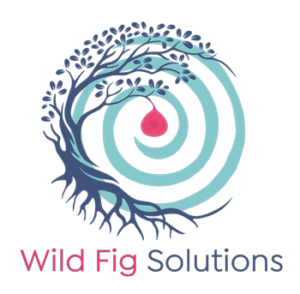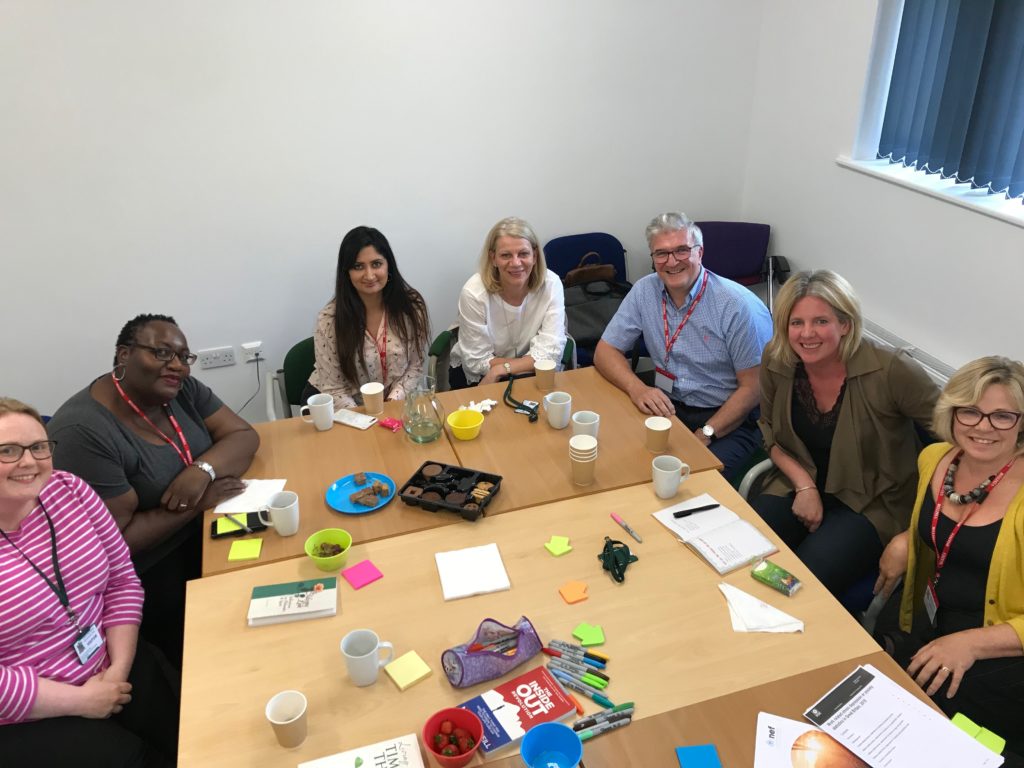Last night a group of coaches, HR pros and leaders gathered in the pretty town of Castle Donnington to talk about wellbeing and explore what’s not working, why are the figures going up, what is needed? All facilitated by Debbie Leafe using Nancy Kline’s Thinking Environment.
In the context of the work I do with clients – reconnecting them to their innate ability for connection, clarity and calm – this session was important to me, both to give our delegates an experience of those innate qualities on the day, but also for them to explore what wellbeing really means and what really needs to happen.
So first the topic : Wellbeing
One of the stand-out comments of the session for me was the clarity of the word wellbeing – i.e. well being. I am a well being. And we are human beings, not human doings. As soon as we chill a bit and stop so much ‘doing’, we drop into ‘being’ – that’s where we rediscover the wellness in our being that is always there, an inner OK-ness. That’s where we rediscover all our innate human qualities which can’t be ‘done’ or ‘actioned’, they aren’t verbs, but they are essential.
Other themes of what wellbeing meant to people:
Flow – not getting stuck in one habit as the solve-all. Moving between what feels right for now – exercise or netflix with biscuits.
Allowing all emotional states – dropping resistance. Stopping the need to give a ‘because’ – I feel sad, I feel stressed, I feel happy – none of these need a justification or a ‘because’. Just acknowledging our state is powerful. Any ‘because’s’ are just a post-event correlation made up by the mind because it thinks that just saying ‘I feel sad’ isn’t good enough.
Stopping the ‘should’s’, the guilt, the shame – or at least paying these less attention, seeing them for what they are. When these should’s dissolve we become more whole because we’re not trying to deny part of what’s real for us in that moment.
Connection with others
Space for me. If I’m OK, I’m better for others.
Not seeking. We are a well being innately. We don’t need to seek it out there. We need to re-find it in here. And it’s there beneath our busy-mind thoughts.
Time as a state of mind. Moving away from work as the centre of the universe to reinvigorate outside interests creates energy and paradoxically more time.

The challenges:
My summary of the challenges as I look back on my notes is ‘slippery’.
We each have our own view of what counts as wellbeing, then there are questions about what employee’s expectations are and ‘should'(!) be, what employer’s expectations are, whether orgs are just doing tick-box wellbeing with one hand while cracking the whip with the other (because there are still shareholders and investors), how my version of stress will be different to yours, how doctors will quickly give a Fit Note for work-related stress while often in a ‘what else could I do with this one side of the story’ situation, with presenteeism and leavism as people limp along being less than effective but not feeling they can stop with the volume to be done.
And the stats, which the majority of the group felt are unreliable, incomplete and not really worth the report paper they’re written on.
So where does that leave the topic?
This isn’t a question we answered on the day but, from my perspective – it starts with each of us. As soon as we venture further and further away from “me”, the further and further we get from finding a sustainable way forward. The more slippery the whole thing becomes. The more disconnected from reality.
That doesn’t mean orgs do nothing, education about what’s out there is fantastic to raise awareness, but it does mean orgs can’t do it all. People are going to get sick, both mentally and physically, and sometimes that is exactly what’s needed to help them see something new about life that will stand them in better long-term stead.
Reverting to parental, cossetting, cotton wooling workplaces – I don’t believe – is the answer. It keeps people in child or victim mode. But caring, adult workplaces that empower and enable to self-resource. Yes to that.

Now the facilitation approach: Nancy Kline’s Thinking Environment
The purpose of Nancy’s work is to quiet down the insecure, noisy voice in our head. It is believing this one’s words which covers over our true essence and stops us seeing our innate brilliance.
It’s also the one that keeps us away from doing the obvious things that would also reconnect us to our well-being-ness!
Having given us context about Nancy’s overall approach, the 10 components and the ground rules for the meeting, Debbie facilitated our exploration based on questions she’d prepared – as well as ones which came up in relation to the content. We used Rounds (going round the table in turn, listening without interruption), Open Dialogue (discussion when anyone can speak but not when someone else is speaking) and Thinking Pairs.
The time flew by, the wisdom and clarity of insight shared was wonderful, and the check-out Round – with everyone commenting on the brilliance of the approach – was feedback enough to say that Nancy Kline’s work is powerful.
I personally saw afresh how being listened to by a quiet mind leads to the quietening of your own mind. In the disappearance of your own and their sense of self, all that’s left is presence, connection and clarity of thought.
And what the world really needs now is connection and clarity of thought.
Thank you again to Debbie for facilitating, to Castle Donnington Community Hub for the venue, to Bianca Botten for her fabulous social media work behind the scenes, and to our delegates who have all contributed to the £180 raised! We are now over half way to our £500 target for the year to sponsor a young person through their TwentyTwenty programme!


